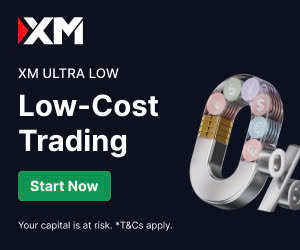
10 minute read
Is XM Legal in Egypt? A Comprehensive Review
The world of forex trading has gained immense popularity in Egypt, driven by the country's growing internet access and an increasing interest in financial markets. Among the many brokers available, XM stands out as a globally recognized platform serving millions of traders. However, a critical question for Egyptian traders is: Is XM legal in Egypt? This article provides a detailed review of XM’s legality in Egypt, its regulatory status, trading offerings, and considerations for Egyptian traders, ensuring you have all the information needed to make an informed decision.

💥 Trade with XM now: Open An Account or Visit Brokers 🏆
Understanding Forex Trading in Egypt
Forex trading involves buying and selling currencies to profit from fluctuations in exchange rates. In Egypt, with a population exceeding 100 million, forex trading has become an attractive opportunity for individuals seeking financial independence. The Central Bank of Egypt (CBE) oversees the country’s financial system, including foreign exchange transactions, ensuring stability and compliance with regulations. Forex trading is legal in Egypt, and the CBE requires all banks and foreign exchange bureaus to report transactions to maintain transparency.
Egypt’s economy relies on sectors like agriculture, tourism, and energy, but financial markets are gaining traction. The country’s large Muslim population also drives demand for Islamic (swap-free) trading accounts, which comply with Sharia law by avoiding interest-based transactions. Most reputable brokers, including XM, cater to this need, making forex trading accessible to a broader audience.
However, Egypt’s internet environment is heavily regulated, with government oversight of online content and occasional website blocks. This regulatory landscape raises questions about the accessibility and legality of international brokers like XM. Let’s dive into XM’s operations and its status in Egypt.
What Is XM? An Overview of the Broker
Founded in 2009, XM is a globally recognized forex and CFD broker headquartered in Cyprus. It serves over 10 million clients across 190 countries, offering trading on forex, stocks, commodities, indices, and cryptocurrencies. XM is known for its user-friendly platforms (MetaTrader 4 and MetaTrader 5), competitive spreads, and excellent customer support in over 30 languages.
XM emphasizes accessibility, with a low minimum deposit of $5, making it ideal for beginners and experienced traders alike. The broker also provides educational resources, bonuses, promotions, and a free demo account for practice. For Muslim traders, XM offers Islamic accounts that adhere to Sharia principles, ensuring inclusivity.
The broker operates under multiple entities, each regulated by different authorities, which is crucial for understanding its legality in Egypt. Let’s explore XM’s regulatory framework and how it applies to Egyptian traders.
Is XM Legal in Egypt?
The legality of trading with XM in Egypt hinges on two factors: the broker’s regulatory status and Egypt’s financial regulations. Here’s a breakdown:
Forex Trading Regulations in Egypt
Forex trading is legal in Egypt, and no laws explicitly prohibit Egyptian residents from trading with international brokers like XM. The Central Bank of Egypt regulates foreign exchange transactions, but individual forex trading falls under less stringent oversight compared to institutional banking. The Egyptian Financial Supervisory Authority (EFSA), now part of the Financial Regulatory Authority (FRA), oversees non-banking financial activities, including securities and derivatives, but forex trading is not heavily regulated for retail traders.
This relatively open regulatory environment allows Egyptians to trade with international brokers, provided the broker is reputable and compliant with global standards. However, traders must ensure they use brokers that adhere to Egyptian laws, especially regarding financial transparency and anti-money laundering (AML) policies.
XM’s Regulatory Status
XM operates under multiple regulatory bodies, ensuring a high level of trust and security for clients. The broker is regulated by:
· Cyprus Securities and Exchange Commission (CySEC): XM’s primary entity, Trading Point of Financial Instruments Ltd, is regulated by CySEC, a top-tier regulator in the European Union. CySEC enforces strict rules on client fund segregation, transparency, and investor protection.
· Australian Securities and Investments Commission (ASIC): XM’s Australian entity is regulated by ASIC, another reputable authority known for robust oversight.
· Belize Internationalhandel Financial Services Authority (IFSC): XM’s Belize entity operates under IFSC, which is less stringent but still ensures compliance with international standards.
· Dubai Financial Services Authority (DFSA): XM’s UAE entity is regulated by DFSA, catering to Middle Eastern clients, including those in Egypt.
These regulations require XM to segregate client funds from company assets, ensuring that traders’ money is protected even if the broker faces financial difficulties. Additionally, XM offers negative balance protection, preventing traders from losing more than their account balance.
For Egyptian traders, XM’s regulation by top-tier authorities like CySEC and ASIC is a significant advantage. It ensures that the broker operates transparently and adheres to international standards, reducing the risk of fraud or mismanagement. While XM is not directly regulated by an Egyptian authority, its global licenses make it a safe and legal option for Egyptian traders, as long as they comply with local tax and financial reporting requirements.
Internet Censorship and Access to XM in Egypt
Egypt’s internet landscape is heavily regulated, with the government blocking websites deemed sensitive or threatening to national security. In 2017, Egypt banned at least 62 websites, for allegedly supporting terrorism or publishing false information. By October 2017, over 434 websites were blocked, including some financial and news platforms.
While there’s no evidence that XM’s website xm.com is blocked in Egypt, traders should be aware of potential access issues due to government censorship. Using a Virtual Private Network (VPN) is a common workaround for accessing restricted websites in Egypt. Importantly, VPNs are legal in Egypt, provided they are used for lawful purposes and comply with local regulations. Traders should choose reputable VPN providers with strong encryption and avoid using VPNs to access prohibited content or engage in illegal activities.
To access XM’s platform, Egyptian traders can visit xm.com or download the XM mobile app, available on iOS and Android. The app is not subject to the same restrictions as websites and provides a seamless trading experience.
Why Choose XM for Forex Trading in Egypt?
XM offers several features that make it an attractive choice for Egyptian traders:
1. Low Minimum Deposit
With a minimum deposit of just $5, XM is accessible to traders of all levels. This low entry barrier is particularly appealing in Egypt, where economic challenges may limit investment capital.
2. Islamic Accounts
XM’s Islamic accounts are swap-free, catering to Egypt’s large Muslim population. These accounts comply with Sharia law by eliminating interest charges on overnight positions, making forex trading halal.
3. Wide Range of Instruments
XM offers trading on over 1,000 instruments, including 55+ forex pairs, stocks, commodities, indices, and cryptocurrencies. This diversity allows Egyptian traders to diversify their portfolios and explore global markets.
4. Advanced Trading Platforms
XM supports MetaTrader 4 (MT4) and MetaTrader 5 (MT5), industry-standard platforms known for their robust features, including charting tools, automated trading, and mobile compatibility. These platforms are ideal for both beginners and advanced traders.
5. Educational Resources and Demo Account
XM provides free webinars, tutorials, and market analysis to help traders improve their skills. The free demo account allows Egyptians to practice trading with virtual funds, gaining confidence before risking real money.
6. Bonuses and Promotions
XM offers bonuses, such as a $30 no-deposit bonus for new clients and deposit bonuses up to 50%. These promotions vary by country, so Egyptian traders should check XM’s website for eligibility.
7. 24/5 Customer Support
XM’s customer support is available 24/5 in over 30 languages, including Arabic, ensuring Egyptian traders can resolve issues quickly. Support is accessible via live chat, email, or phone.

💥 Trade with XM now: Open An Account or Visit Brokers 🏆
Considerations for Egyptian Traders
While XM is a reputable and legal broker, Egyptian traders should keep the following in mind:
1. Tax Obligations
Egyptian traders are responsible for reporting forex trading profits to the Egyptian Tax Authority. Failure to comply with tax laws can result in penalties. Consulting a tax professional is advisable to ensure compliance.
2. Internet Restrictions
As mentioned, Egypt’s internet censorship may affect access to financial websites. Using a reputable VPN or the XM mobile app can mitigate this issue. Traders should avoid free VPNs, which may compromise privacy, and ensure their VPN usage complies with Egyptian laws.
3. Risk Management
Forex trading carries significant risks, including the potential for substantial losses. XM’s high leverage (up to 1000:1) can amplify both profits and losses. Traders should use risk management tools, such as stop-loss orders, and only invest what they can afford to lose.
4. Choosing the Right Account
XM offers Micro, Standard, Ultra-Low, and Shares accounts, each with different spreads and conditions. Egyptian traders should select an account that aligns with their trading goals and experience level. Islamic accounts are available for all account types except Shares.
5. Verifying Account Details
To comply with AML and Know Your Customer (KYC) regulations, XM requires traders to verify their identity and address. Egyptian traders should prepare documents like a passport, national ID, or utility bill to complete the verification process.
How to Get Started with XM in Egypt
Follow these steps to start trading with XM from Egypt:
· Visit XM’s Website or App: Go to xm.com or download the XM app from the iOS or Android app store.
· Open an Account: Choose your account type (Micro, Standard, Ultra-Low, or Shares) and complete the registration form. Select the Islamic option if needed.
· Verify Your Account: Submit identification documents for KYC verification.
· Deposit Funds: Fund your account using payment methods like bank cards, e-wallets (e.g., Skrill, Neteller), or local bank transfers. The minimum deposit is $5 for most accounts.
· Practice with a Demo Account: Use the free demo account to test strategies and familiarize yourself with MT4/MT5.
· Start Trading: Once comfortable, begin trading with real funds, using risk management tools to protect your capital.
XM vs Other Brokers in Egypt
To provide context, let’s compare XM with other popular brokers in Egypt, such as Oanda and IG:
· Regulation: Like XM, Oanda and IG are regulated by top-tier authorities (e.g., CFTC, FCA). All three are safe for Egyptian traders.
· Minimum Deposit: XM’s $5 minimum deposit is lower than Oanda ($0 but higher practical requirements) and IG ($250), making XM more accessible.
· Islamic Accounts: All three brokers offer swap-free accounts, but XM’s Islamic accounts are highly tailored for Middle Eastern traders.
· Spreads: XM’s spreads start at 1 pip for Standard accounts and 0.6 pips for Ultra-Low accounts, competitive with Oanda and IG.
· Platforms: XM’s exclusive use of MT4/MT5 is robust but less varied than IG, which offers a proprietary platform alongside MT4. Oanda supports MT4 and its own platform.
XM stands out for its low entry barrier, Islamic account offerings, and extensive educational resources, making it particularly appealing for Egyptian beginners.
Conclusion: Is XM a Good Choice for Egyptian Traders?
XM is a legal, safe, and reliable broker for Egyptian traders, thanks to its regulation by top-tier authorities like CySEC and ASIC, low minimum deposit, and Sharia-compliant accounts. While Egypt’s internet censorship may pose occasional challenges, using a reputable VPN or the XM mobile app ensures seamless access. The broker’s competitive spreads, diverse instruments, and robust support make it an excellent choice for both novice and experienced traders.
However, traders must remain mindful of Egypt’s tax obligations, internet restrictions, and the inherent risks of forex trading. By practicing with a demo account, using risk management tools, and staying informed about local regulations, Egyptian traders can leverage XM’s platform to achieve their financial goals.
💥 Note: To enjoy the benefits of the partner code, such as trading fee rebates, you need to register with XM through this link: Open An Account or Visit Brokers 🏆
Read more:

